What separates the successful small businesses from the struggling ones?
The list of potential items stretches from positioning to marketing to product quality to customer service and beyond—but underneath the countless business decisions an entrepreneur needs to make is a single guiding force.
Mindset.
When the stresses of running a small business all rear their heads at once, mindset is what separates the cool-headed decision maker from the panicked mistake maker.
The ability to make calm, intelligent business decisions—even in response to failures—takes the right mindset. It takes someone able to respond well under pressure, as well as someone who approaches business from the right angles.
If that doesn’t sound like you (and let’s face it, stress gets to all of us sometimes), why not learn from the best?
These are 11 of the best books for business mindset, so that you can bring a productive attitude to running your business.
The 11 best books on mindset and success for small businesses are:
- Mindset: The New Psychology of Success by Carol Dweck
- The Lean Startup: How Today's Entrepreneurs Use Continuous Innovation to Create Radically Successful Businesses by Eric Ries
- Grit: The Power of Passion and Perseverance by Angela Duckworth
- Extreme Ownership: How U.S. Navy SEALs Lead and Win by Jocko Willink and Leif Babin
- Zero to One: Notes on Startups, or How to Build the Future by Peter Thiel and Blake Masters
- The Obstacle is the Way: The Ancient Art of Turning Adversity to Advantage by Ryan Holiday
- Meditations by Marcus Aurelius
- Deep Work: Rules for Focused Success in a Distracted World by Cal Newport
- Talent is Overrated: What Really Separates World-Class Performers from Everybody Else by Geoff Colvin
- Drive: The Surprising Truth About What Motivates Us by Daniel Pink
- Who Moved My Cheese?: An Amazing Way to Deal with Change in Your Work and in Your Life by Spencer Johnson
Try it now, for free
1. Mindset: The New Psychology of Success by Carol Dweck
There are two dominant mindsets you can bring to your business. Which one do you have?
Carol Dweck is a psychology researcher at Stanford University. Her research focuses on mindsets—what they are, where they come from, if they can change, and how they affect our lives.
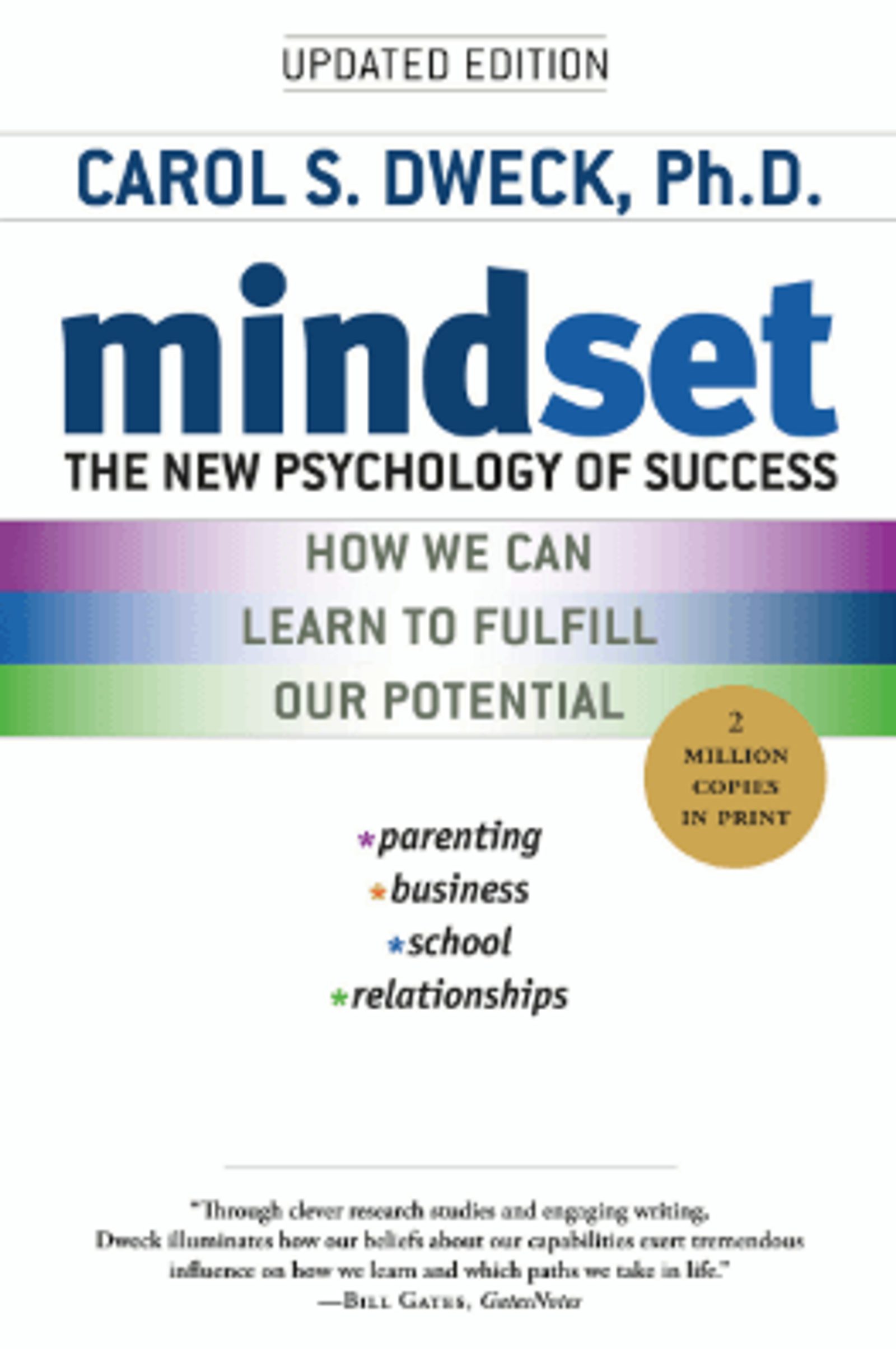
The two mindsets research has uncovered? Fixed mindset and growth mindset.
If you have a fixed mindset, you believe that what you get is what you got. Your intelligence, personality, and ability were set at birth—or are at least carved into stone and impossible to change.
If you have a growth mindset, you believe that improvement is always possible. Whether you’re working on a specific skill or a broader trait like intelligence, you believe that effort can move you forward.
Such a simple difference—but the implications of differences in mindset are enormous.
If you have a fixed mindset, every failure is a body blow to who you are as a person. You feel the need to prove yourself over and over—because you need to demonstrate that you are talented.
If you have a growth mindset, you seek out criticism. You actively take on bigger challenges knowing that there’s the possibility of failure—because those challenges are how you improve. When you do fail, you dust yourself off and try something different.
Dweck gives examples of how each mindset affects a variety of behaviors. In business, a growth mindset can help you make better decisions and build a stronger company.
2. The Lean Startup: How Today’s Entrepreneurs Use Continuous Innovation to Create Radically Successful Businesses by Eric Ries
The Lean Startup is a classic, considered one of the best business books for entrepreneurs.
And although it focuses on principles that can help entrepreneurs grow their businesses, it also has some important business mindset lessons that can change the way you approach growth.
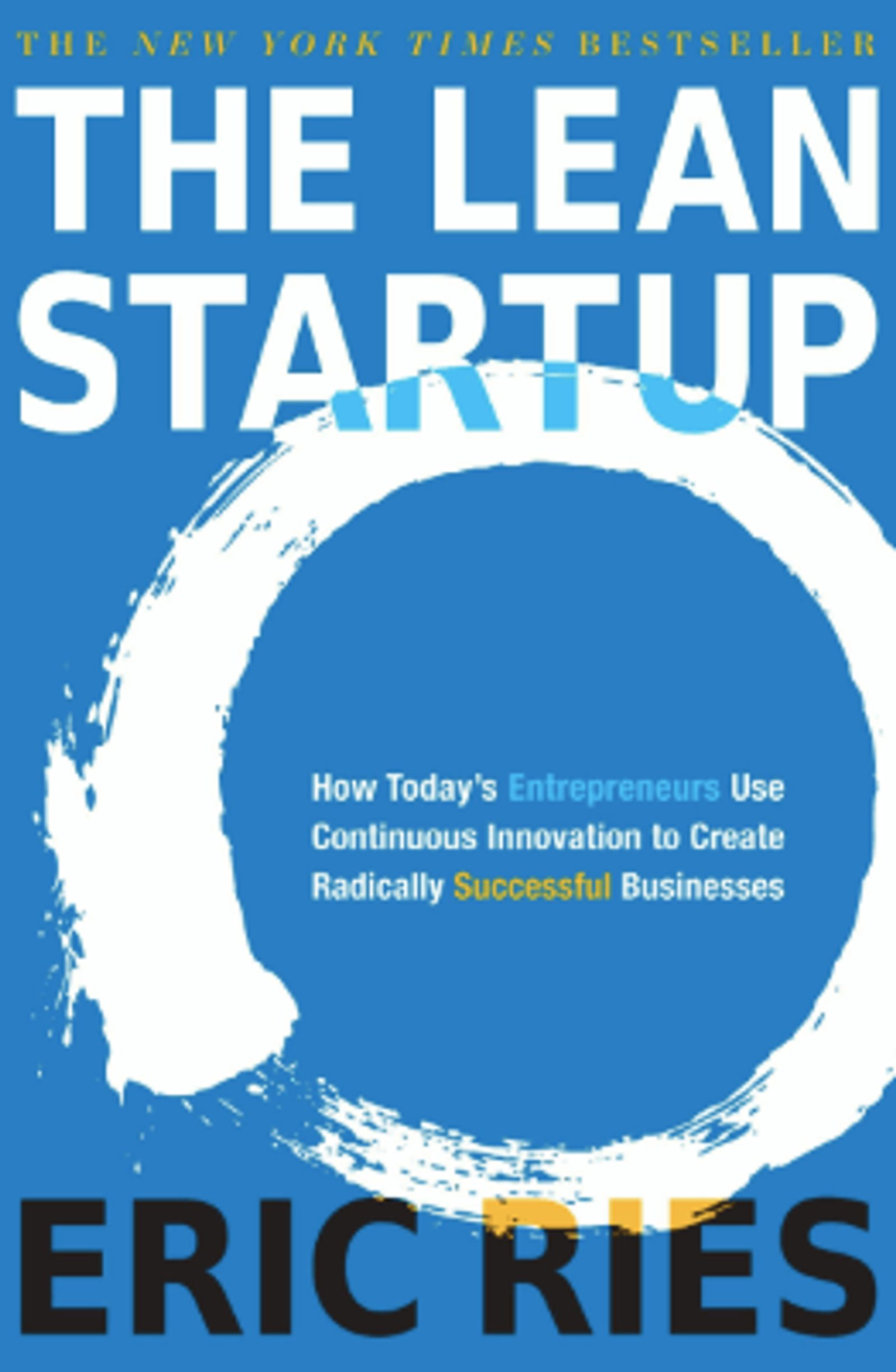
The cornerstone of the lean startup approach is the build-measure-learn feedback loop. Rather than building from scratch and expecting a miracle, Eric Ries argues that it’s far more effective to iterate.
By starting small and learning what works through careful measurement (of metrics that indicate real growth, rather than vanity metrics), businesses and startups can experience hockey-stick growth.
Before you think “I’m not an entrepreneur” or “I don't run a startup” and dismiss this business growth book, Ries’ definition of entrepreneurship is one of the more important mindset shifts of the book.
An entrepreneur is anyone trying to start something new under conditions of uncertainty. When it’s hard to predict cause and effect, the lean startup approach can help.
Make your business radically successful
3. Grit: The Power of Passion and Perseverance by Angela Duckworth
What separates the best from the pretty good? Psychology researcher Angela Duckworth argues that it’s grit.
Duckworth’s research, presented in this book, ties in nicely with Carol Dweck’s research on growth mindset in that it validates a lot of her findings. Top performers are not necessarily more intelligent or talented than those farther down the latter—but they try harder.
In Grit, Duckworth digs into what gritty individuals have in common—and how anyone can apply the principles of grit to become stronger, better, and more resilient.
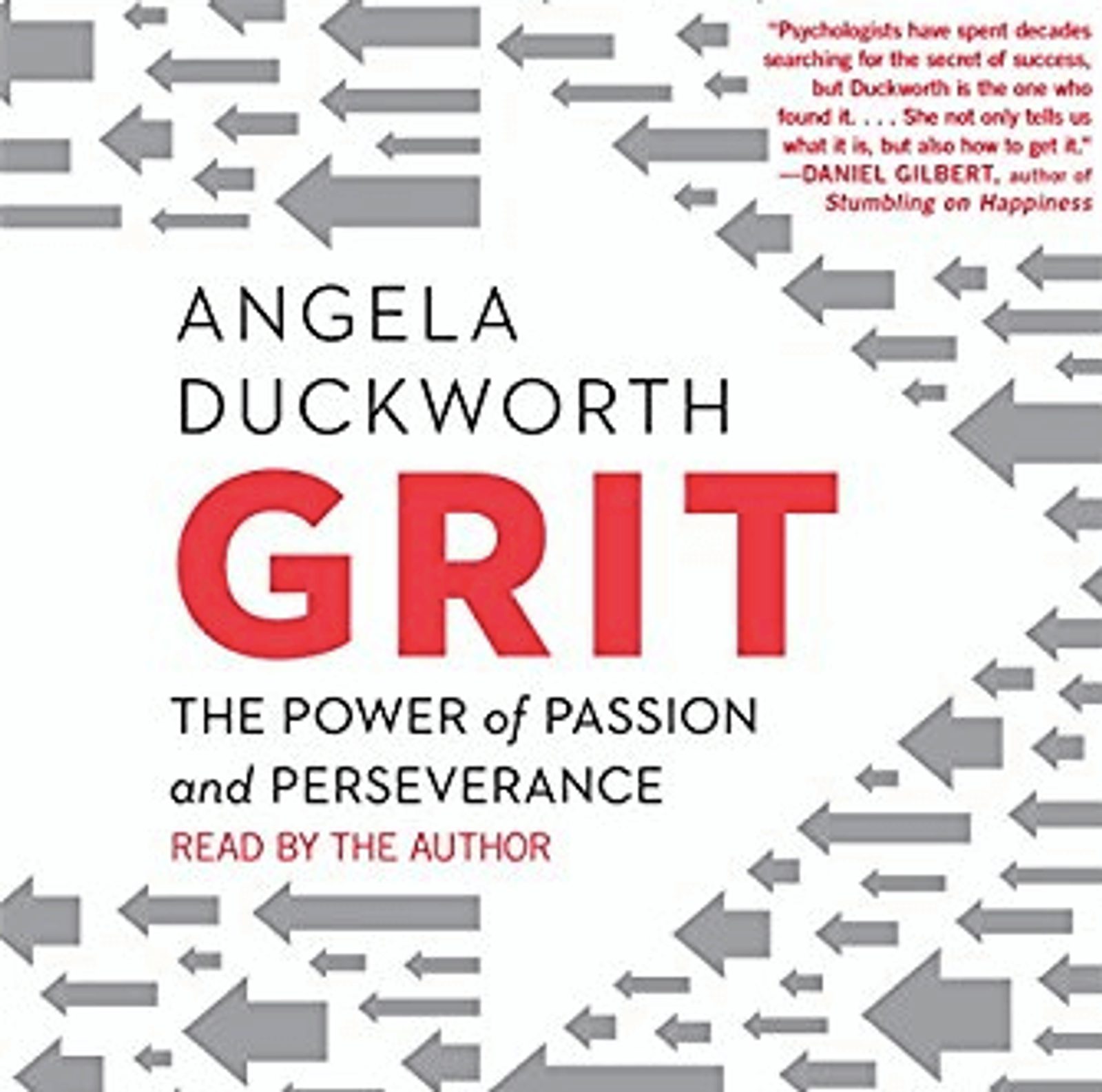
In the research, gritty people have four key characteristics:
- Interest: A deep and abiding interest in something they want to improve or accomplish
- Practice: A willingness to engage in effortful, deliberate practice
- Purpose: A sense that their goals and interests matter to something outside of themselves
- Hope: The belief that they have the ability to improve and get results through their effort
In the rest of the book, Duckworth walks through how the grittiest among us set goals, find their interests, and practice to achieve success.
4. Extreme Ownership: How U.S. Navy SEALs Lead and Win by Jocko Willink and Leif Babin
Extreme Ownership is a great mindset book about principles of leadership and teamwork used by Navy SEALs. If you want to be intimidated, look up a picture of one of its authors, Jocko Willink.
Throughout, Willink and Babin provide actionable advice on how to cultivate a high-performing team. From advice on building buy-in and setting standards, to prioritization and creating a culture of discipline—Extreme Ownership is an essential tome on leadership.
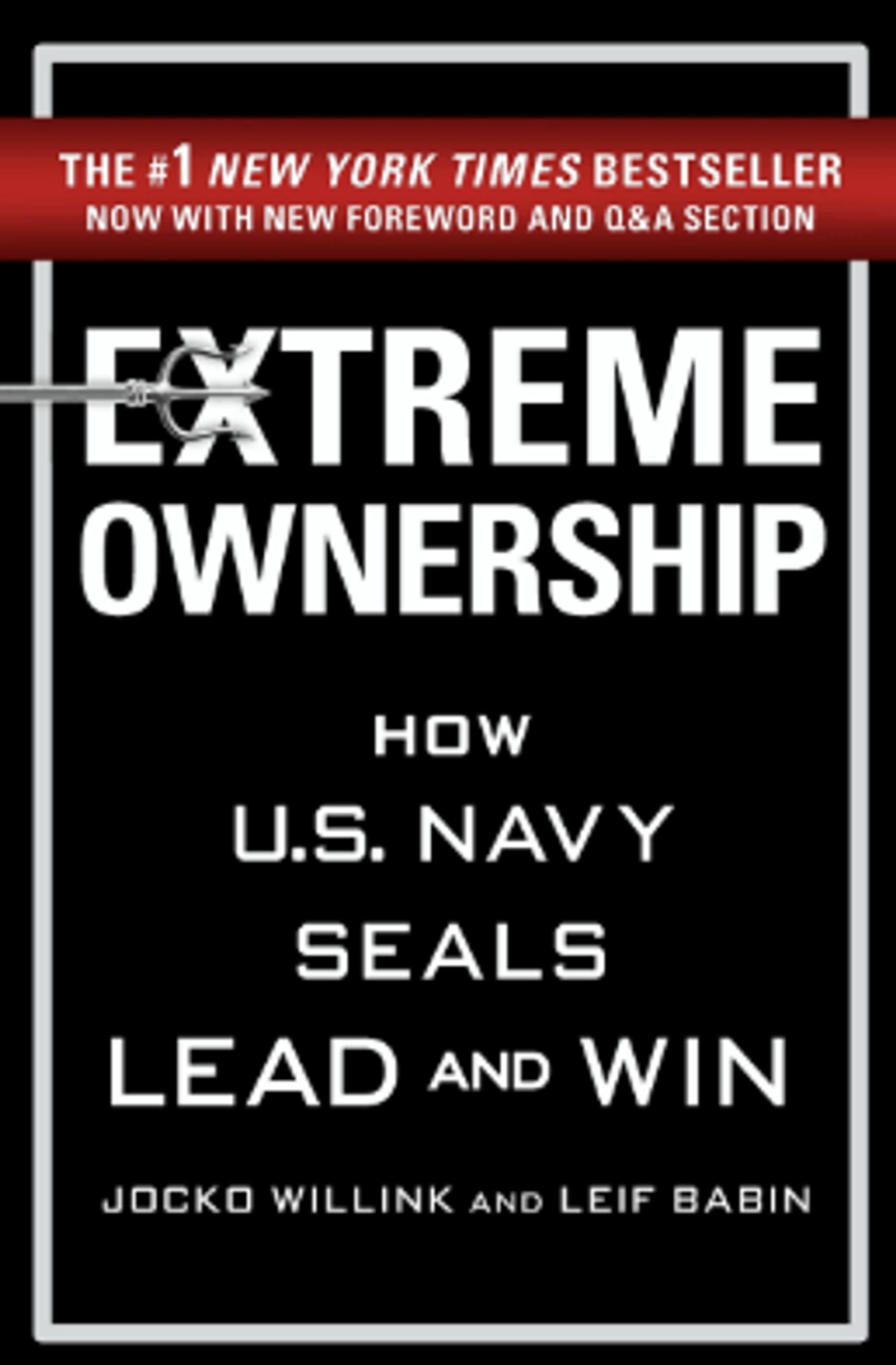
At the heart of the lessons in this book is a core mindset: the mindset of extreme ownership.
As the authors relate, extreme ownership is the idea that a leader should take responsibility for all of a team’s failures and stumbles. Rather than looking to assign blame, the most effective teams accept responsibility, acknowledge mistakes, and look for ways to solve problems.
5. Zero to One: Notes on Startups, or How to Build the Future by Peter Thiel and Blake Masters
Zero to One is an incredible mix of no-nonsense business advice and big-picture, principled thinking.
In Zero to One, PayPal founder and investor Peter Thiel argues that the greatest startups and companies avoid competition by creating things that are in their own category entirely.
Instead of going from “one to n,” which is relatively straightforward, the most disruptive innovators go from “zero to one.”
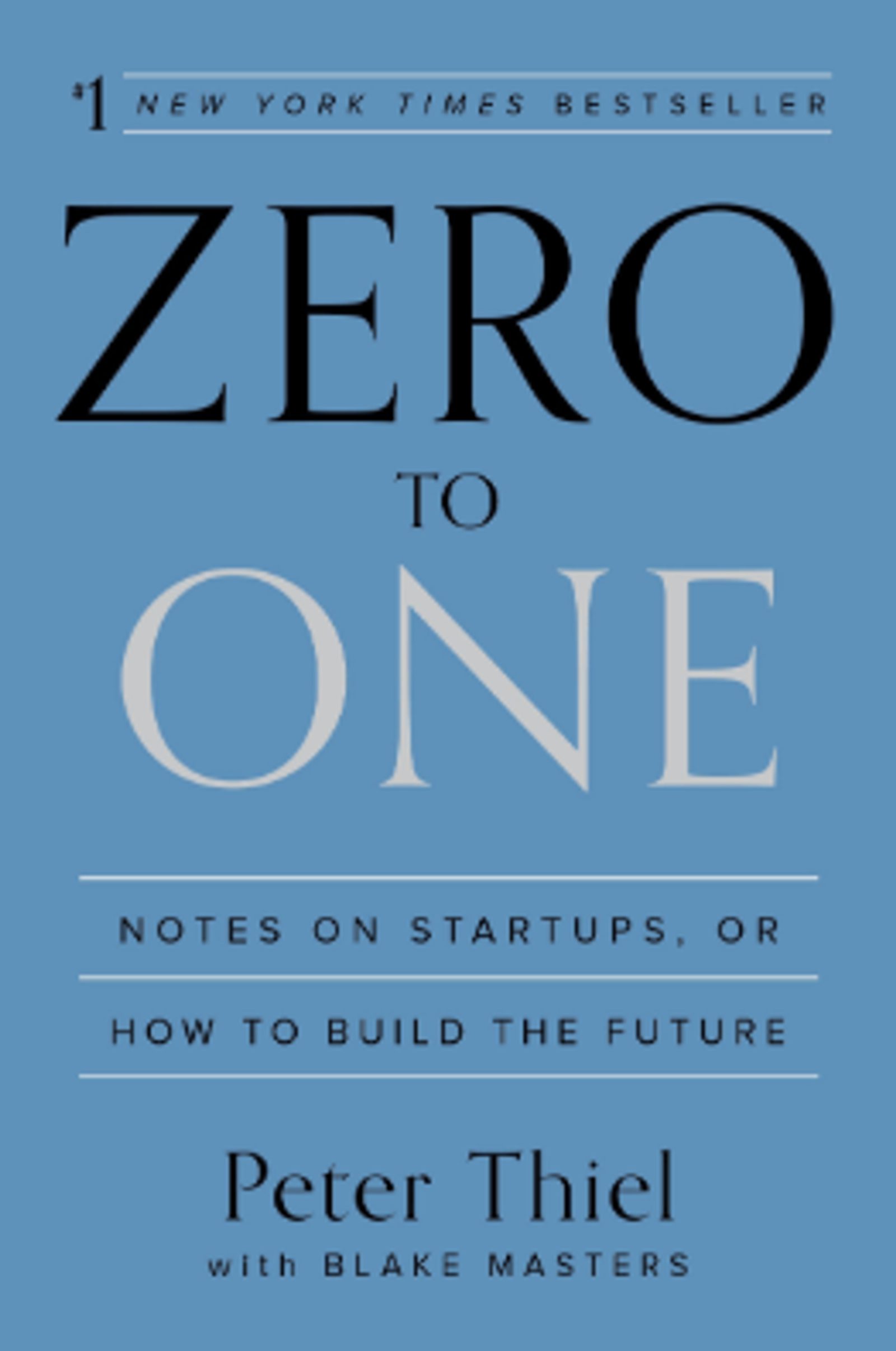
Thiel runs through a variety of characteristics of great businesses, with advising ranging from the highly tactical to the highly strategic. How many board members should a company have? What are the most important metrics to consider?
He lays out the four characteristics of a powerful new company:
- Proprietary technology
- Network effects
- Simple scalability
- Branding
But he also talks more broadly about the mindset that leads to innovative companies in the first place. He believes that a founder must believe in a definite future—and that most people are instead indefinite optimists.
You’ll need to read this book — one of the top books in business — to find out just what that means.
6. The Obstacle is the Way: The Ancient Art of Turning Adversity to Advantage by Ryan Holiday
“The impediment to action advances action. What stands in the way becomes the way.”
This quote from Marcus Aurelius (more on him in a minute) is at the heart of Ryan Holiday’s bestseller The Obstacle is the Way.
A modern take on the classic philosophy of stoicism, The Obstacle is the Way studies how the things that seem to inhibit our progress can actually be our most important sources of progress.
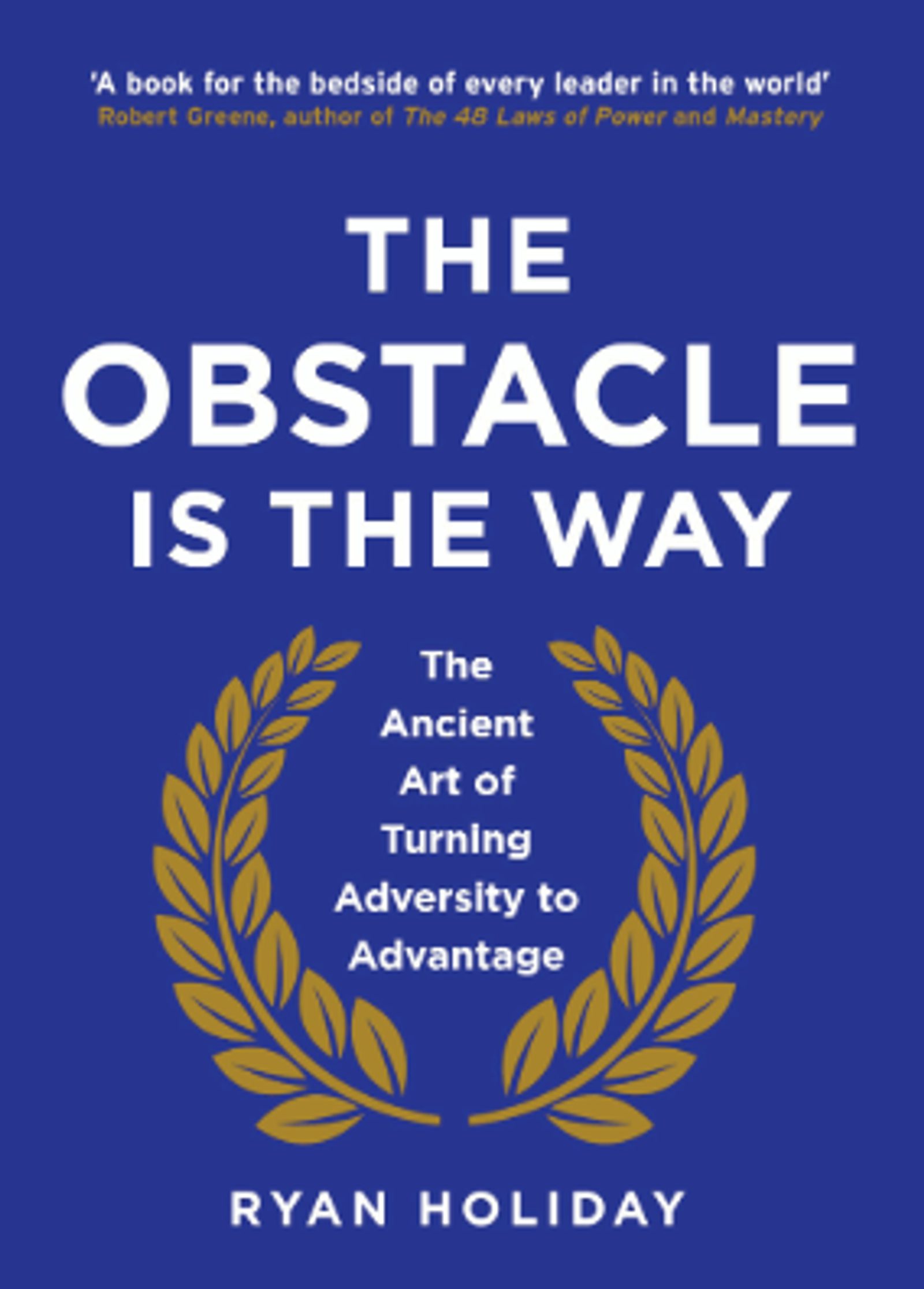
Holiday breaks this book into three sections: Perception, Action, and Will.
First, how do we perceive our obstacles? A classic tenet of stoicism is that we can’t control external events—but we can control our perceptions and reactions to them. Are we perceiving our obstacles in a way that it constructive and productive, rather than frustrating?
Second, how do we take action? Do we act randomly in the hopes of finding a magic bullet that will solve our problems? Or do we take a deliberate approach and channel our energy into the ways open to us?
Third, what happens when the obstacle is powerful? When our obstacles are not easily overcome, we rely on will, determination, and patience to move forward.
The Obstacle is the Way is a book on mindset that doesn’t always apply its lessons to business directly. But the lessons it teaches can be valuable to anyone who faces obstacles in their business (aka everyone).
7. Meditations by Marcus Aurelius
With the recent rise in the popularity of stoicism, this classic text has risen to prominence again.
Meditations is a collection of 12 books by Marcus Aurelius, the Roman Emperor whose death marked the end of the 200 year Pax Romana.

Likely never intended for publication, Meditations takes the form of a personal journal. It is considered one of the most important texts of stoic philosophy, and has inspired many of the most successful people living today—from Tim Ferriss to Bill Clinton.
Because of its meandering nature, Meditations is difficult to summarize. Suffice it to say that the collection as a whole provides advice on dealing with adversity, being mindful of small wonders, and doing excellent work.
8. Deep Work: Rules for Focused Success in a Distracted World by Cal Newport
Whatever happened to deep work?
In his book on success, Deep Work, Cal Newport argues that deep work is becoming increasingly rare, replaced by large stretches of less intense, less productive “shallow work.”
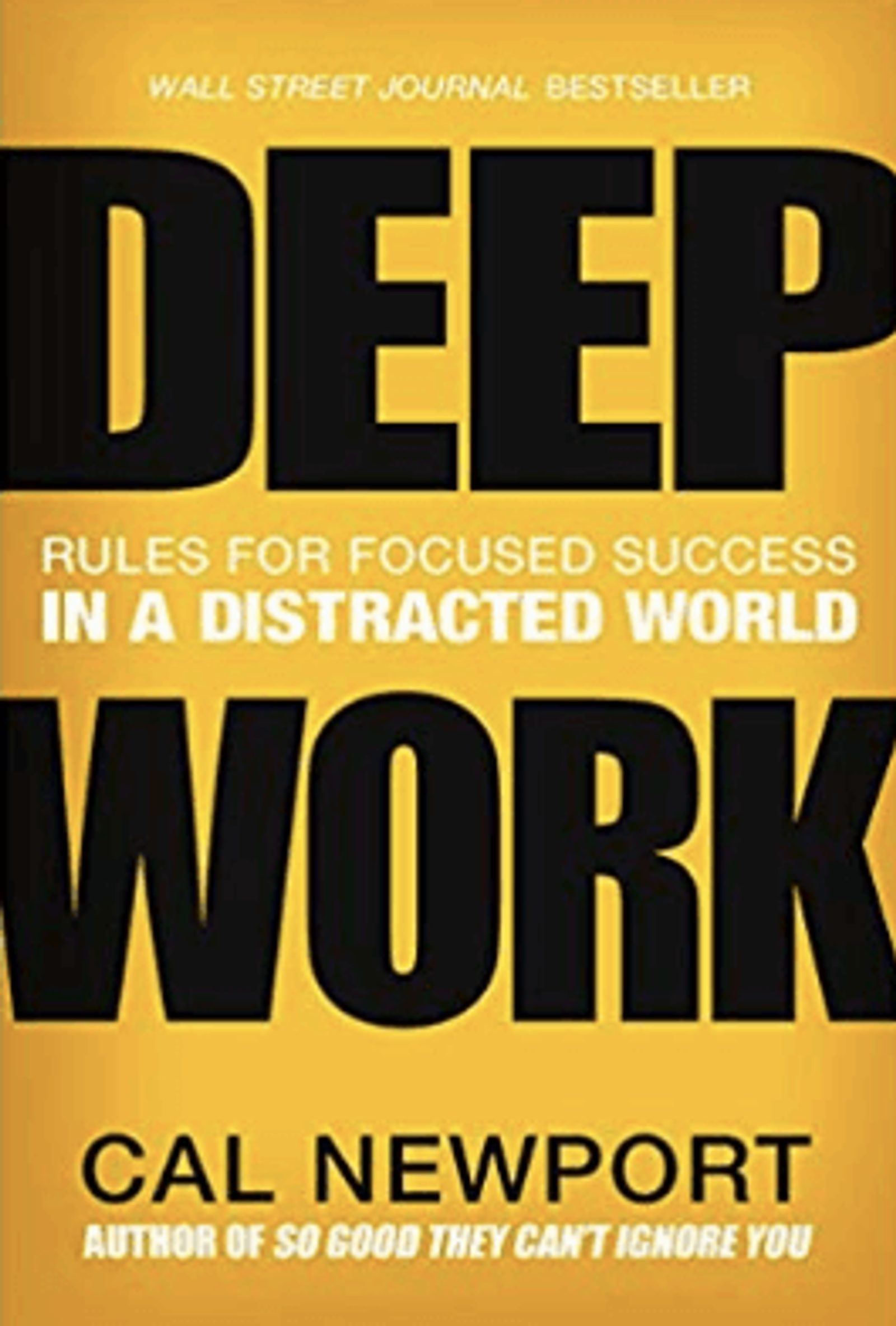
At the same time, the fruits of deep work are incredibly valuable—in fact, Newport argues that success is directly related to the amount of deep work you can accomplish in a day.
And yet—there are many challenges to deep work. Bosses and employees expect us to be accessible at all times. Deep work itself is not always enjoyable, and can be boring or frustrating. Society as a whole is filled with distractions.
In Deep Work, Newport presents a compelling case for the effects of deep work on success—as well as providing actionable ways to cultivate the practice of deep work.
Making the mindset shift towards valuing deep work can have powerful effects on business success.
9. Talent is Overrated: What Really Separates World-Class Performers from Everybody Else by Geoff Colvin
Does talent exist? Where does it come from?
In an argument that very much fits the theme of this list, Geoff Colvin argues that talent is created, not inherited.
By cultivating deliberate practice, it’s possible to improve performance and develop skills much faster than most people. In fact, argues Colvin, most people do not improve their skills very much at all—deliberate practice can change that.
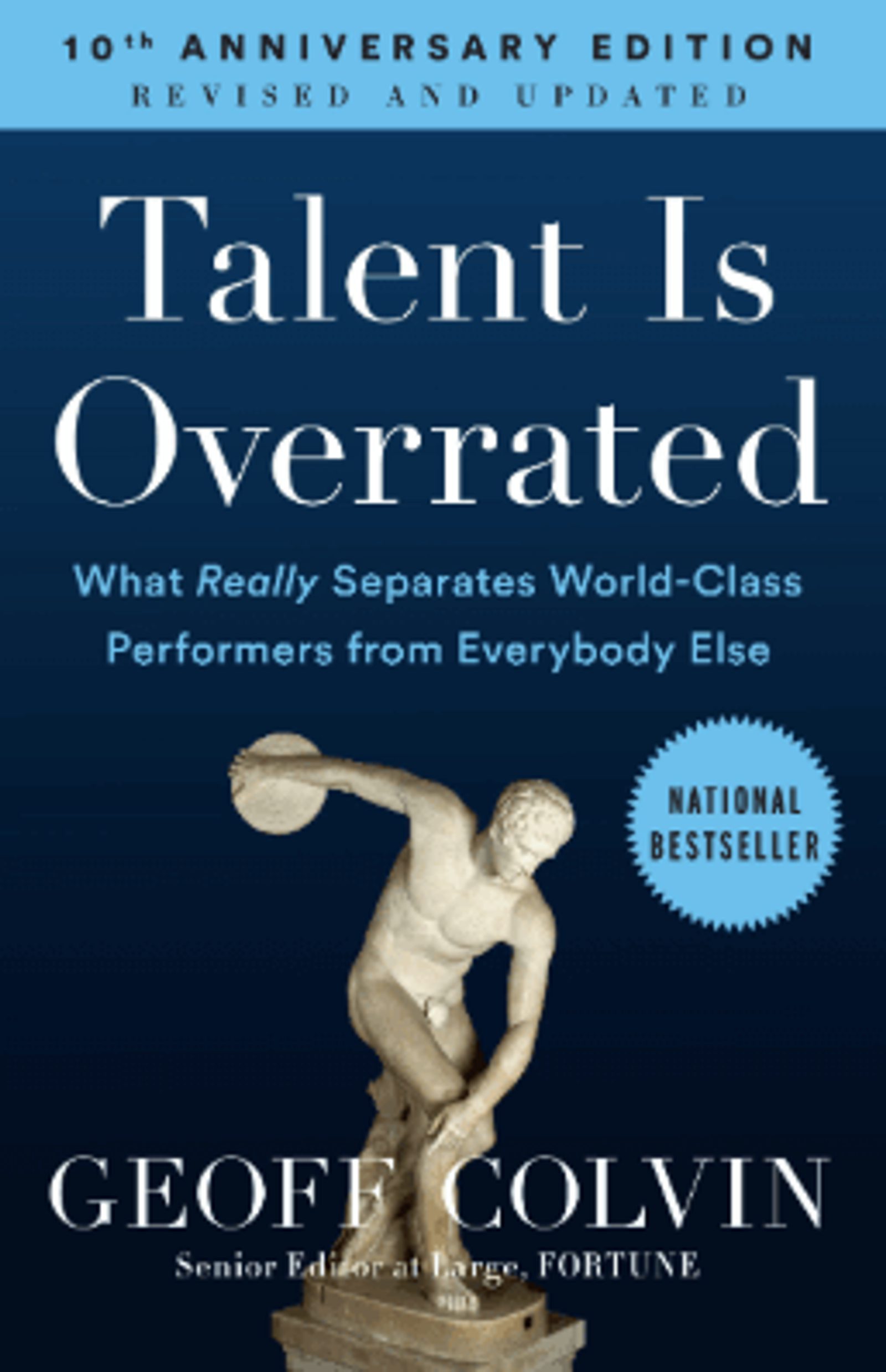
Of the many business lessons Colvin presents in this book, one of the most important is the difference between practice and experience. Research on expertise shows that people don’t become experts just because they’ve been doing something for a long time.
Rather, most people spend most of their time not improving—which is why so many careers and businesses stagnate.
Instead, cultivating a mindset of practice—a recommendation that other authors like Dweck, Duckworth, and Newport would echo—is an important part of achieving success.
10. Drive: The Surprising Truth About What Motivates Us by Daniel Pink
What drives you to do great work?
In Drive, Daniel Pink argues that they way most people—and businesses—understand motivation is fundamentally flawed.
A classic approach to understanding motivation argues that people mostly do things in order to earn rewards.
You don’t need to look too hard to see the influence of that approach on modern business. Bonuses, commissions, even general salary structures often assume that people do work because of what it gets them.
Pink argues that this is no longer true.
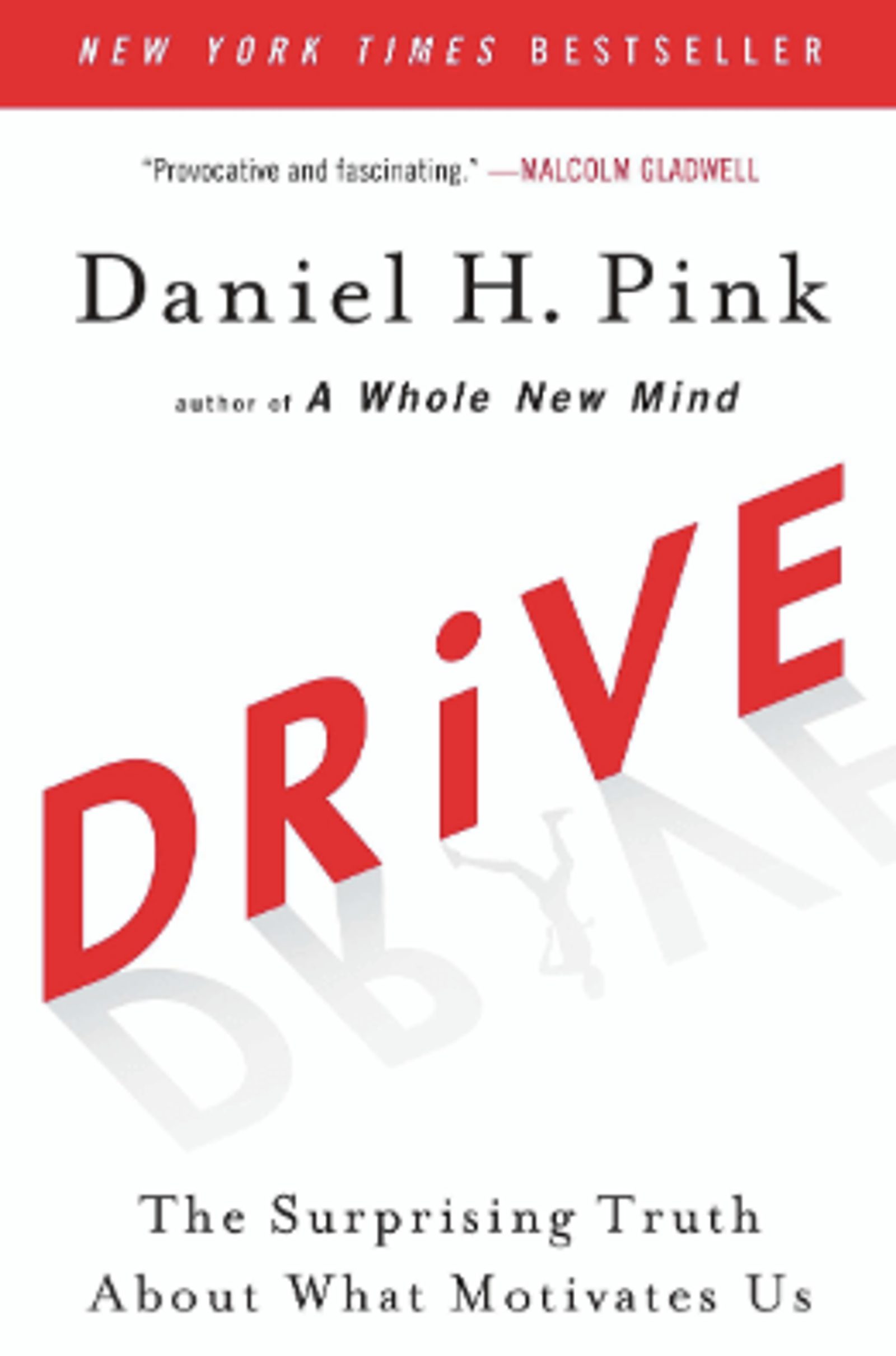
In the days where most work was routine and didn’t require much creativity, rewards were a good way to motivate behavior. But as computers take over routine work and the modern workforce relies more on creativity, external rewards can actually make you less effective.
Instead, drawing on the psychology research around Self Determination Theory, Pink argues that people want a different kind of reward—an intrinsic reward—which appears in these three ways:
- Autonomy: People want to have control over their lives
- Mastery: People want to be good at things—competence feels good
- Purpose: People want to do things that matter
Analyzing the modern business mindset, Pink presents the ways that most businesses fall short—and how tapping these three forces can have remarkable effects.
11. Who Moved My Cheese?: An Amazing Way to Deal with Change in Your Work and in Your Life by Spencer Johnson
Who Moved My Cheese is a fun little story to end on.
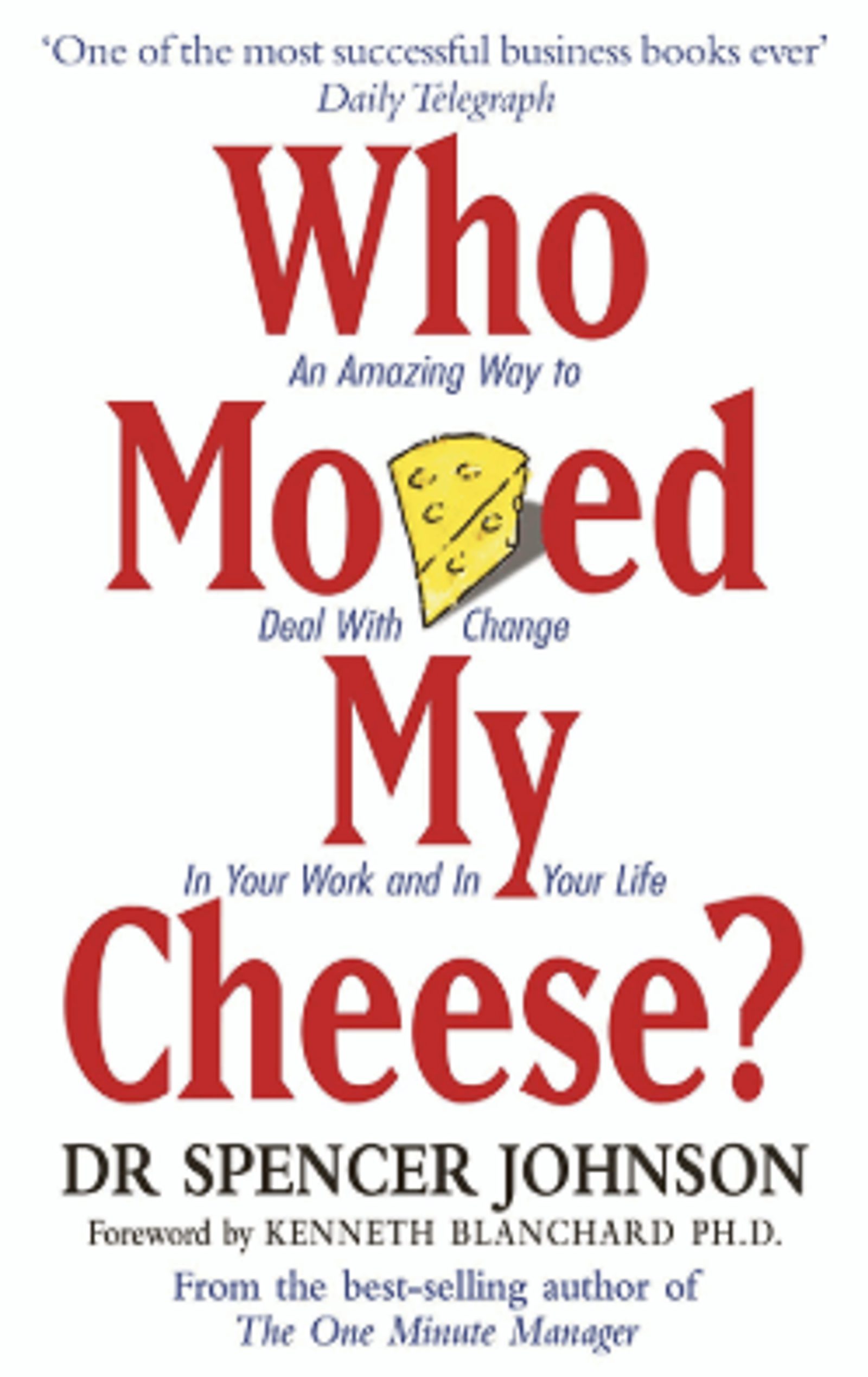
This book is short—you could probably finish it in an afternoon. It’s also a very easy read, as it’s a simple parable about mice hunting down cheese in a maze.
I won’t spoil the story here. But in a short fable, Spencer Johnson is able to make an argument in favor of a mindset that embraces change and reacts to it, rather than dwells on the past.
There’s no one “right” mindset for business success
Books are an important inspiration for developing a business mindset that works for you. The best business success books will help you develop skills to have a successful business.
People are not born with a mindset that leads to success — you only develop one with trial and error, and through exploration of what worked for other people. So keep reading — one tip that pops up again and again is that the desire to learn in key to a healthy, successful business.








